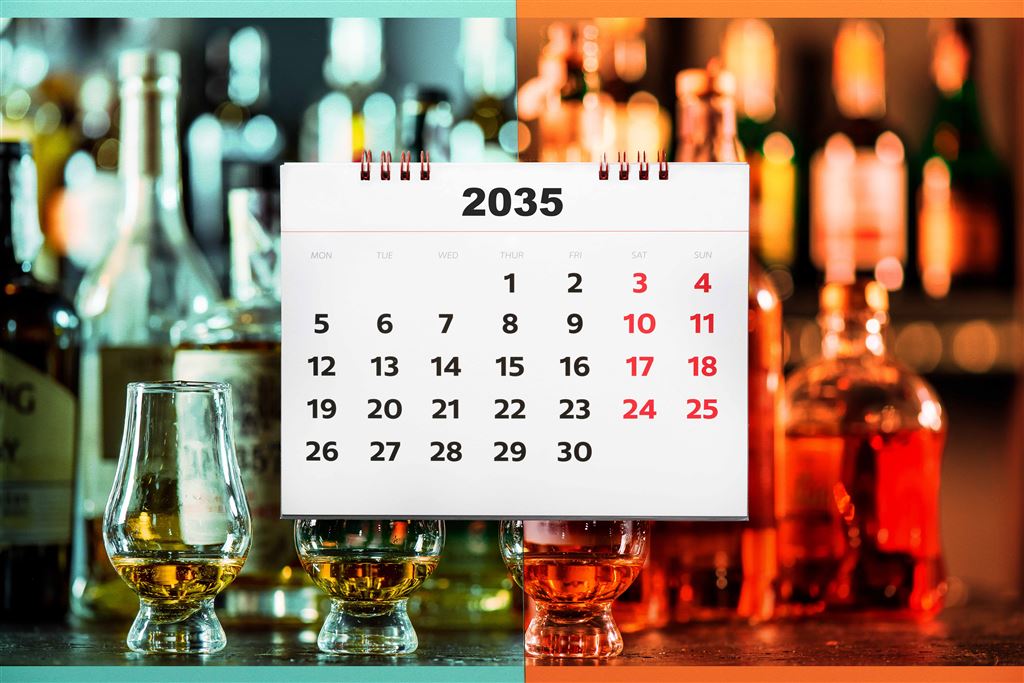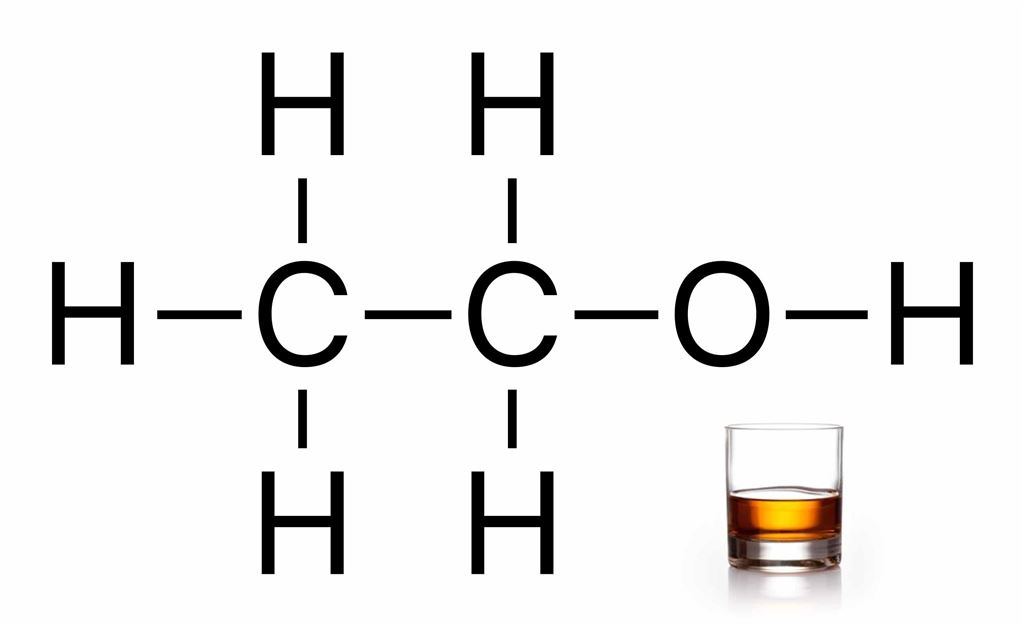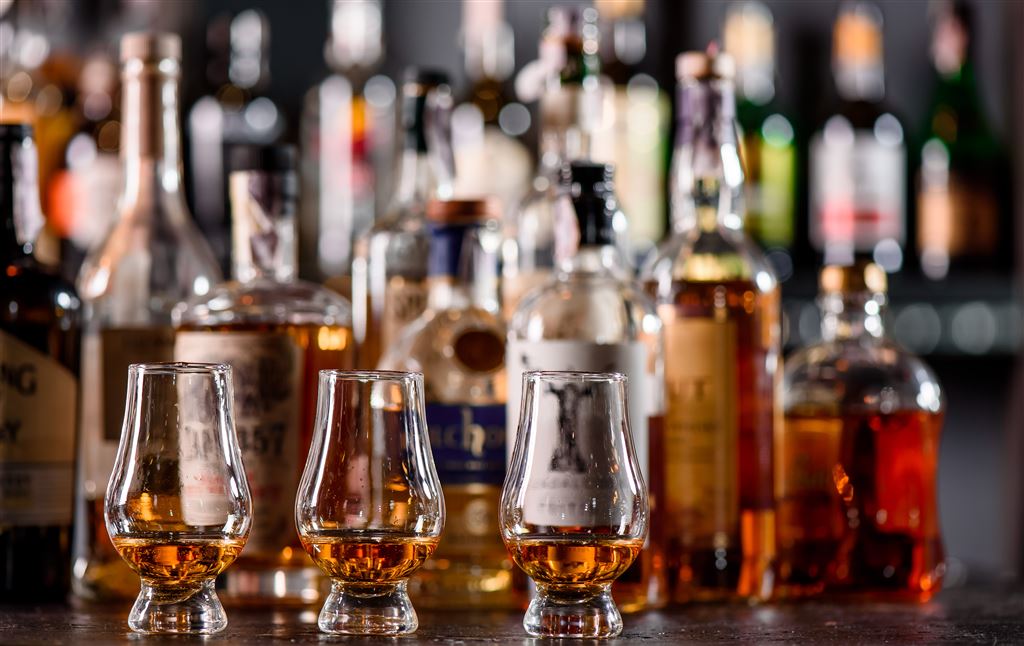One of the most popular questions new bourbon enthusiasts ask is, "How fast will my bourbon oxidize once I open the bottle?" They are really asking, "How long is bourbon good for once opened? How long can I store a bottle before the flavor changes significantly?" I made the distinction between these two questions because they address different things, and thus the answers are different. The key to answering is to start by understanding oxidation.

What is Oxidation?
Oxidation is a chemical reaction that occurs when ethanol in the form of bourbon, rye, or other distilled alcohol comes into contact with oxygen or another oxidizing substance. In this chemical reaction, there is a loss of electrons by an ethanol (alcohol) molecule, atom, or ion.
Now, that sounds like a lot of intricate scientific lingo. How does this chemical reaction relate to whiskey after opening a bottle? The answer is that it doesn't. Oxidation primarily occurs long before the whiskey is bottled, during the fermentation stage.
Whiskey Doesn't Oxidize After You Open the Bottle
Does a chemical reaction take place after bottling? Do those elements in the bourbon and the air trapped inside your bottle continue to cause oxidation? No, not in a way anyone can detect!

Whiskey doesn’t oxidize noticeably after you open the bottle.
Oxidation is a prolonged reaction. Once whiskey has been bottled and even opened, it is not exposed to other oxidizing substances other than air. Since perceptible oxidation doesn't occur after you open a bottle, you can store bourbons for years without the bottle's contents changing significantly due to oxidation. Simply put, whiskey doesn't oxidize after you open the bottle in a way bourbon enthusiasts can discern.
Can the Flavor of Whiskey Change Over Time? Yes!
Many high-proof neat-drinking bourbon enthusiasts will swear that their tasting experience changes from the first pour to the subsequent pour, the infamous "neck pour." Why is this? Is this change perceived, or is it based on science? The flavor changes bourbon drinkers experience after a bottle is open are based on science. However, as we have already discussed, these changes do not come from oxidation. Yes, the flavor of whiskey can change over time, but the changes come from another scientific process called dissipation.
Dissipation and the Bottle Level's Impact on Taste
Dissipation, in the context of whiskey drinking, is the physical process by which volatile aroma and flavor molecules are transferred from liquid to the surrounding air and become not only unavailable but irrecoverable from the liquid.
Interestingly, the higher the proof, the more volatile the whiskey inside the bottle. Exposure to air will cause more volatile aroma and flavor molecules to dissipate from the liquid into the headspace within the bottle. Depending on the quality of the whiskey, this concentration of components in the aroma can be good or bad. I am going to assume that you only drink the good stuff. This change in the bottle's air impacts taste.
This release of volatile organic esther compounds into the surrounding air in the bottle impacts taste. This release means that when the bottle gets below half full, there will be more volatility in the whiskey's flavor. If your bottle gets close to 1/3 full, finish it off.
Smell is Taste!
Now, here's the key. If you only take away one thing from this article, please remember the following two sentences. Flavor is a combination of aroma (volatile aromatic components) and taste. Anything that impacts the smell of the whiskey will inherently change the taste since odor plays a significant role in flavor formation. The process of dissipation changes the aroma of whiskey and, thus, its taste.
The notes enthusiasts often use to describe how something tastes—such as chocolate, vanilla, strawberry, and orange—are not flavors detected by the tongue but are aromas sensed by the opening between the oropharynx and the nasal cavity. This relationship is why seasoned tasters will hold the bourbon in their mouths while breathing. This tasting process brings the volatile components and aromas into the nasal cavity. Scientifically speaking, smell is taste, and taste is smell. The two are inseparable.
What Causes Bourbon to Go Bad?
Many things can cause bourbon to go bad. These include evaporation of alcohol, storing alcohol in a freezer, drinking directly from the bottle, exposure to direct sunlight, and huge temperature swings.

Evaporation of Alcohol
The rapid evaporation of alcohol is one surefire way a bourbon can go bad quickly. So, your stored bottles must be correctly and tightly sealed. Bottle caps are not impermeable; some evaporation will occur naturally over time.
If you want to experiment, pour a few ounces of bourbon into a glass and leave it on your kitchen counter for a few days, weeks, or months. Notice the way its taste drastically changes over time. The change will be mainly due to the rapid rate of evaporation of the alcohol.
Storing Alcohol in a Freezer or Refrigerator
If you have ever stored whiskey in a refrigerator or freezer overnight, you may have noticed how its appearance changes. The whiskey will become thicker and cloudy when you freeze whiskey; the chemical compounds of the ethanol clump together as the temperature drops. While this appearance change may not alter the flavor too much, the cooling of the whiskey hinders the dissipation process spoken of earlier. As a result, the aroma of the bourbon or other American whiskey will lessen. Since smell is taste, the taste of the whiskey will diminish as well.
Exposure to Direct Sunlight
Prolonged exposure to direct sunlight will adversely affect whiskey. It is thought that the organic compounds in whiskey do not react favorably to light. I will not get into this science since most bourbon enthusiasts understand the impact of light on whiskey. Store your whiskey in a dark place and out of direct sunlight.
See also the Breaking Bourbon Bourbon Storage Experiment.
Open Whiskey Can Last Many Years

The conclusions are clear, bourbons, ryes, and other whiskeys do not oxidize perceptibly after opening a bottle. If you store your bourbon correctly, the tasting experience can last for many years, even after opening. Some studies suggest up to five years or more; especially if the bottle is not opened frequently.
Bourbon is for drinking and not collecting. Drink your bourbon and you'll never have to find out how many years it can last.